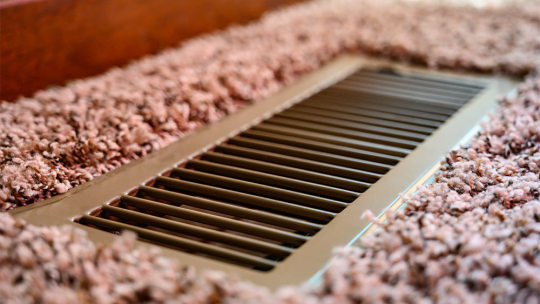Troubleshooting a Buzzing Furnace: 5 Common Causes and Solutions

A buzzing furnace can be a cause for concern, especially when the cold weather sets in. It’s essential to address this issue promptly to ensure your furnace functions efficiently and safely. In this blog post, we’ll explore some common reasons why your furnace might be making a buzzing sound and provide you with practical solutions to resolve the problem.
1. Loose or Faulty Electrical Connections
One of the most frequent culprits behind a buzzing furnace is loose or faulty electrical connections. Over time, wires and connections can become loose due to vibrations and temperature fluctuations. When this happens, it can create a buzzing or humming noise as electricity flows through the loose components.
Solution:
- Turn off the power to your furnace at the circuit breaker.
- Carefully inspect all electrical connections, including wires, terminals, and relays.
- Tighten any loose connections and replace any damaged wires or components.
- Turn the power back on and listen for any changes in the noise.
2. Blower Motor Issues
The blower motor is responsible for circulating warm air throughout your home. If it’s malfunctioning or experiencing difficulties, it can produce unusual sounds, including buzzing.
Solution:
- Check if there are any obstructions in the blower motor or the fan blades.
- Lubricate the motor if it’s making a squeaking noise, but be cautious not to over-lubricate.
- If the issue persists, contact a professional technician to inspect and potentially replace the blower motor.
3. Dirty or Clogged Air Filters
Clogged air filters can restrict airflow, causing your furnace to work harder. This extra strain on the system can lead to buzzing or humming noises and reduce the life expectancy of your Furnace.
Solution:
- Replace your furnace’s air filters regularly, ideally every 1-3 months, to ensure proper airflow.
- Check the filter for dirt and debris that may have accumulated over time.
4. Gas Valve Problems
If the buzzing sound is more of a clicking noise and you have a gas furnace, it might be related to the gas valve. Gas valves can become dirty or malfunction, causing them to make unusual sounds.
Solution:
- This issue requires immediate attention from a qualified HVAC technician.
- Do not attempt to fix gas valve issues yourself, as it involves handling potentially dangerous gas components.
5. Vibration Noise
Sometimes, the buzzing sound might not be coming directly from the furnace but could be a result of vibrations in the ductwork or nearby components.
Solution:
- Inspect the ductwork and surrounding areas for loose or vibrating objects.
- Tighten any loose duct connections or components.
- Consider installing vibration-reducing pads or isolators to minimize noise.
A buzzing furnace can be a sign of various issues, ranging from minor to more serious. While some problems can be resolved with DIY solutions, others require professional attention. If you’re unsure about the cause of the buzzing sound or how to fix it, it’s always a good idea to contact a licensed HVAC technician. Regular maintenance and timely repairs will ensure your furnace operates efficiently and keeps your home warm during the colder months. Don’t ignore those buzzing sounds—address them promptly for a cozy and hassle-free heating experience.
Additional Tips for Homeowners to Prevent a
Buzzing Furnace
Here are a few more tips for homeowners dealing with a buzzing furnace:
- Regular Maintenance: Schedule annual maintenance checks with a qualified HVAC technician to keep your furnace in top condition.
- Invest in a Programmable Thermostat: A programmable thermostat can help you optimize your furnace’s performance by adjusting the temperature settings based on your schedule.
- Consider an Upgrade: If your furnace is old and inefficient, it might be time to invest in a modern, energy-efficient model that will save you money in the long run.
- Emergency Shutdown: If you ever smell gas or suspect a gas leak, immediately shut down your furnace, leave your home, and call your gas company or emergency services.
By following these additional tips and the solutions provided earlier, you can ensure that your furnace operates smoothly, efficiently, and safely throughout the winter seasons.
Read the full article
Comments
Post a Comment